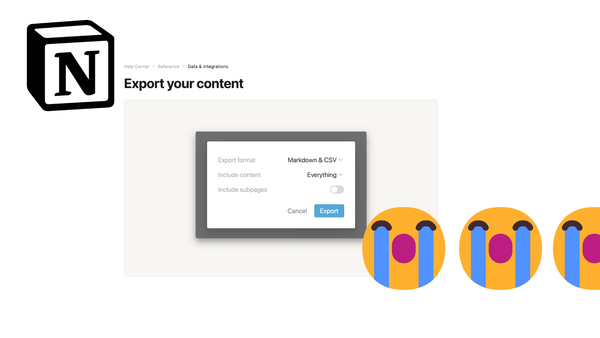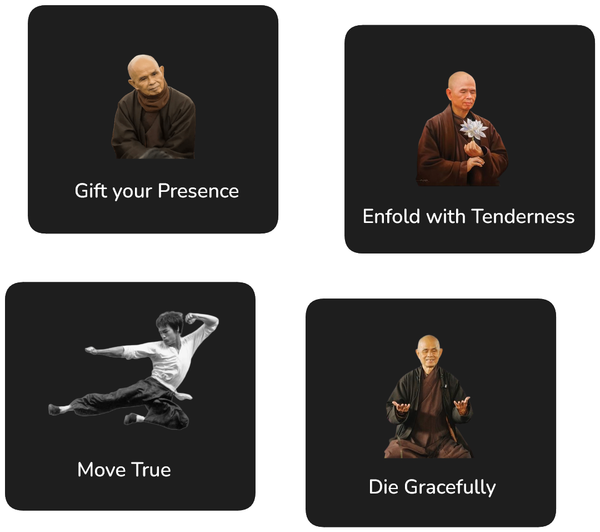Three Surprisingly Useful yet Simple Skills: Breathing, Waiting, Thinking

Mastery of skills allows us to have a greater impact on the world around us. Whether it's coding, painting, or any other skill, becoming better at what we do enables us to create more and make a difference. However, with countless skills to choose from, it's important to identify the ones that truly matter on a deep level for our lives. In this article, I will explore three surprisingly useful skills that have the power to lead us to a happy life that benefits others. The skills I will explore are breathing, waiting and thinking.
I am far from being a master in these skills. So for each of them, I will list what I am currently working on to improve.
Breathing
The first skill we will delve into is breathing. Breathing is an obvious and vital skill for sustaining life. We all know that without it, we cannot survive. But breathing goes beyond mere survival; it has a profound impact on how we feel and reflect our emotional state. When we are anxious or excited, our breathing becomes shallow and rapid. Conversely, when we are relaxed, our breath naturally becomes slow and deep. The fascinating aspect is that we can intentionally manipulate our breathing to influence our mood. By consciously making our breathing shallow and fast or slow and deep, we can directly impact our emotional state.
This connection between breathing and emotions forms the foundation of numerous meditation and relaxation practices. For instance, the practice of mindfulness often emphasises paying attention to our breath as a way to anchor ourselves in the present moment. By taking a few deep, mindful breaths, I can experience a noticeable shift in my state of being. It is a simple yet powerful tool for regulating emotions and finding inner calm.
To become better at breathing, there are two things I want to focus on:
- I should strive to cultivate awareness of my breath throughout the day. By frequently checking in on my breath, I can gain valuable insights into my current emotional state. Am I breathing steadily and deeply, or am I caught up in shallow, rapid breaths? This awareness can help me gauge my mood and take necessary steps to restore balance.
- I can practice breathing through my belly. This technique, often called diaphragmatic breathing, has been proven to be highly beneficial for well-being. By breathing deeply into my belly, I engage the diaphragm, allowing for a more complete exchange of oxygen and carbon dioxide. This activates the body's relaxation response, promoting a sense of calmness and reducing stress.
Waiting
Moving on to the second skill, let's explore the often-neglected art of waiting. In today's fast-paced world, waiting has become something to be avoided at all costs. The trillion-dollar tech industry thrives on minimising waiting time and maximising efficiency. We expect instant gratification, immediate responses, and constant stimulation. But what if we embraced waiting as an opportunity for growth and self-reflection?
Waiting is deeply intertwined with profound concepts found in various philosophies, such as Buddhism. Buddhism emphasises the impermanence of all things and the importance of detachment. By recognising that everything is in a constant state of flux, we can cultivate patience and acceptance. Waiting allows us to practice detachment from our desires and the outcomes we anticipate. It reminds us that life is a continuous flow, and our role is to navigate its currents with grace and equanimity. The challenge lies in knowing how to practically apply these philosophical ideas to our daily lives.
Waiting in contrast is something we all understand and experience regularly. We instinctively know that it means to be good or not to be good at waiting. To become better at this skill, I want to focus on the following:
- I will bring to the forefront of my mind the realisation that in time, every problem turns to dust. By reminding myself of the impermanence of situations and challenges, I can cultivate a sense of perspective and patience. This understanding will help me navigate waiting periods with a calm and grounded attitude, knowing that whatever I am waiting for will eventually pass or be resolved.
- I will consciously shift my focus away from anticipating something good in the future and instead redirect my attention to how I can find enjoyment in the act of waiting itself. Rather than considering waiting as a means to an end, I will explore the present moment and discover ways to make waiting a positive experience; finding joy in observing and experiencing the world around me. By embracing the beauty of waiting and finding ways to appreciate it, I can transform the act of waiting into a fulfilling and enriching activity in itself.
Thinking
Lastly, let's explore the skill of thinking. Renowned philosopher René Descartes famously said, "I think, therefore I am." While this statement has been the subject of philosophical debate, there is no denying the importance of thinking in our lives. Thinking is what enables us to examine our perspectives, challenge our assumptions, and ultimately shape our reality. I will aim to improve this skill by:
- I will dedicate time to deep thinking; to really do nothing but thinking without distractions. In these moments of solitude and focused thinking, I am more able to truly explore complex problems and gain valuable insights.
- I will try to write more. By writing, I can clarify my thoughts and solidify my understanding of complex concepts. Writing brings structure and coherence to thoughts, allowing me to communicate them effectively and gain new perspectives.
In conclusion, these three skills—breathing, waiting, and thinking—are often overlooked in our productivity-driven culture. However, by embracing them and actively practising them in my life, I can cultivate a more meaningful and impactful existence. I will personally dedicate myself to breathing mindfully, embracing the art of waiting, and dedicating time to deep thinking. These skills have the potential to bring about lasting transformations and a sense of fulfilment that extends beyond mere productivity.
Keep in mind that these three skills are just a fraction of the vast array of skills available for exploration. The journey toward a fulfilling life is a personal one, and different skills may resonate more strongly with different individuals. Consider what skills are most aligned with your values, aspirations, and unique path.





